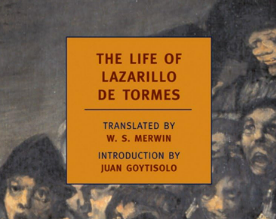Chapter V: How They Took Lazaro to the Capital
byChapter V: How They Took Lazaro to the Capital begins during one of the most dehumanizing periods of Lazaro’s life, where survival became its own kind of imprisonment. Encased in a wooden tank that mimicked a coffin more than a home, he was paraded through towns not as a person but as a spectacle—a man who, they claimed, had turned into a fish. His captors crafted this illusion with precision, and the crowds were eager to believe. For six long months, Lazaro existed on nothing but the dirty water in the tank, which ironically kept him alive by purging his body through constant diarrhea. The pain was unrelenting, yet even more crushing was the humiliation. The people watched with fascination, not sympathy, while his mind, though dulled by weakness, remained painfully aware of the absurdity around him. Each day blurred into the next, and his voice was silenced beneath the myth others built.
The journey to the capital was orchestrated by three men who knew how to spin fantasy into profit. The mule driver handled the logistics, the rope handler managed the spectacle, and the orator played the crowd with convincing tales. Lazaro, too weak to resist, became complicit by necessity. In private moments, he questioned them, not out of rebellion but out of sheer disbelief. They responded with amusement, treating his suffering as part of the act. He was no longer just a man to them—he was merchandise. Over time, even Lazaro began to internalize the identity forced upon him. When the public saw a creature, he learned to behave like one, knowing resistance would bring nothing but more misery. It was a strange kind of survival, one where truth bent to the will of profit and performance.
Upon entering the capital, the deception only grew more elaborate. Crowds gathered in greater numbers, eager for distraction, and coins clinked steadily into the trio’s pockets. The city, always hungry for novelty, welcomed the oddity without question. Lazaro’s tank became the centerpiece of their scam, set in plazas and fairs, drawing endless lines of gawking spectators. Among them were two university students, curious and unconvinced. They observed with more than amusement, noting inconsistencies in the story and the movement of Lazaro’s eyes. Rather than mocking, they investigated, and with sharp logic, they declared that the supposed fish was nothing more than a malnourished man. Their voices cut through the noise, threatening to unravel the entire charade if they were given the authority to intervene.
That moment, though brief, filled Lazaro with both fear and hope. Fear because exposure could lead to a worse fate if the public turned on him, but hope because someone finally saw him not as a beast but as a person. He realized then how deeply deception can blind even the most observant. The students’ demand for clarity sparked murmurs among the crowd, and Lazaro sensed a shift. Though no one intervened immediately, the illusion had cracked. That crack, though small, reminded him of who he truly was beneath the role forced upon him. He had not lost himself entirely—just buried the truth under layers of survival.
Lazaro’s reflection on this ordeal reveals more than just physical torment; it uncovers the brutal mechanics of exploitation. His captors saw him as a means to an end, and society applauded their performance without questioning the ethics behind it. The crowds believed because it was easier than thinking. Lazaro, robbed of voice and agency, learned to navigate the cage by becoming part of the lie. Yet even then, his mind stayed sharp. He knew that endurance wasn’t about denial—it was about storing enough of yourself away until freedom became possible. His ability to endure became his quiet rebellion, and his identity, though obscured, was never truly erased.
This chapter captures the absurdity of survival in a world eager to profit from fantasy. Lazaro’s suffering, masked by spectacle, reveals how quickly humanity can be dismissed when entertainment is at stake. But it also reveals something more powerful—his adaptability and unshaken will to live. He didn’t break beneath the weight of the lie; he waited, watched, and preserved what dignity he could. And in that, he showed that even the most desperate soul, trapped in a farce, holds within them the quiet strength to outlast the cruelty of others.

